小时候,妈妈对我说,猫咪呀最怕水了。长大后,我遇到了很多猫族勇士,它们喜欢偷看主人洗澡,常常打翻水盆,甚至有的还会游泳!(⊙ˍ⊙)这些可爱又可恨的小精灵到底和水有着怎样的关系呢?小译今天为你揭晓答案~
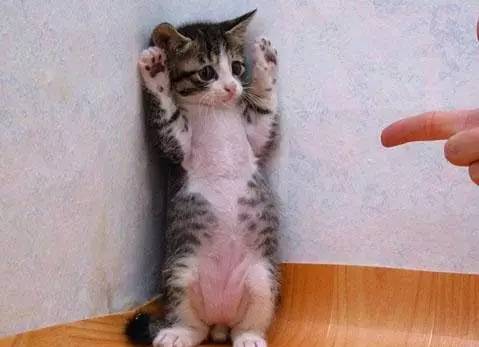
Cats have developed a reputation for being rather aquaphobic, but do our feline friends really hate water? If you’ve ever tried to bathe a cat, you may think so, but the truth is that cats have a complicated relationship with H2O.
猫是出了名的怕水,可是我们这些喵星人朋友真的讨厌水吗?如果你给猫洗过澡,可能会这样认为。但事实上,喵星人和H2O的关系复杂着呢!
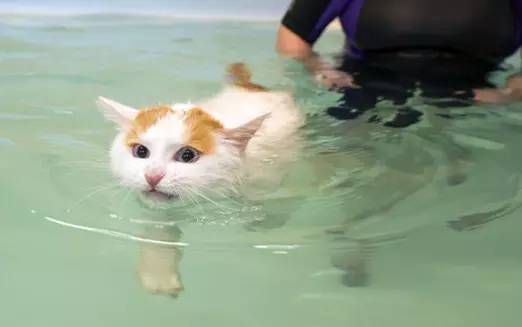
Many cats are fascinated by water and may enjoy dipping their paws into the bathtub or dunking their heads under the faucet for a drink. Certain breeds of domestic cat are even known to go for the occasional swim. For example, the Turkish Van has earned itself the nickname “swimming cat” because of its affinity for water.
许多猫咪对水很着迷,它们喜欢用脚掌蘸着浴缸里的水玩儿,也喜欢把头伸到里面喝水。某些品种的家猫甚至有时候会去游个泳,比如土耳其梵猫就是因为喜欢和水亲密接触赢得了“游泳猫”的称号。
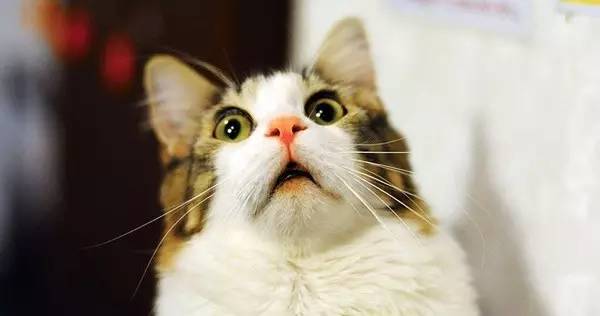
However, even though cats can paddle just as well as man’s best friend, your average feline likely won’t have any interest in going for a swim. Why? Scientists and animal behaviorists say there a variety of reasons.
虽然喵星人划水本领几乎跟汪星人一样好,但它们对游泳并没有兴趣。为什么呢?科学家和动物行为学家总结了一系列原因。
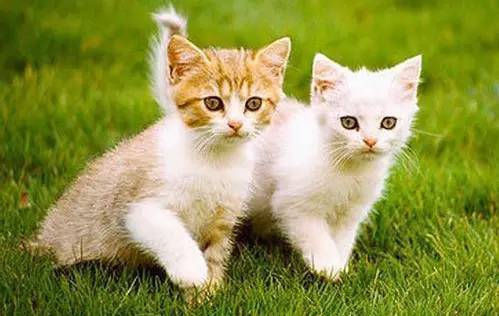
The first is evolution. While wild cats in warm climates may go for the occasional refreshing dip to cool off, most domestic cats descend from felines that lived in dry regions so swimming simply wasn’t necessary for survival. “Domestic cats were descended from Arabian wild cats,” Dr. John Bradshaw, a professor at the University of Bristol’s School of Veterinary Sciences, told Mental Floss. “Their ancestors lived in an area with very few large bodies of water. They never had to learn how to swim. There was no advantage to it.”
第一个原因就是进化。虽然生活在温暖气候地区的野猫偶尔会到水里洗个澡消暑,但大多数家猫的祖先都生活在干燥地区,所以游泳并不是猫咪生存的必备技能。布里斯托大学兽医学院教授约翰·布莱德肖博士在《心理牙线》杂志的采访中说到:“家猫是从阿拉伯野猫进化而来的,这些野猫生活的地方水很少,所以它们不需要学习游泳。学会了也没什么优势。”
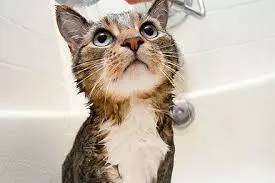
Also, despite thousands of years of living alongside us, cats still retain the same instincts as their wild ancestors and are only “semi-domesticated,” according to a team of researchers from schools including Washington University School of Medicine and Texas A&M; and published in the journal PNAS. This means that felines are always on the lookout for potential danger and want to remain in good shape in case they must fight or flee. However, when a cat’s fur is wet, the animal is weighed down, which compromises agility and makes him vulnerable to attack.
第二个原因是,虽然喵星人已经和我们朝夕相处了上千年,但它们还保持了野猫的本性,只能算“半驯化”,该观点由华盛顿大学医学系和德州A&M大学等学院提出,并在《美国科学院院报》上发表。也就是说,猫科动物对潜在的危险非常警惕,并时刻保持战斗或逃跑的状态。但猫咪的毛湿了之后,身体就会变重,这样它们行动就不太灵活,容易受到攻击。
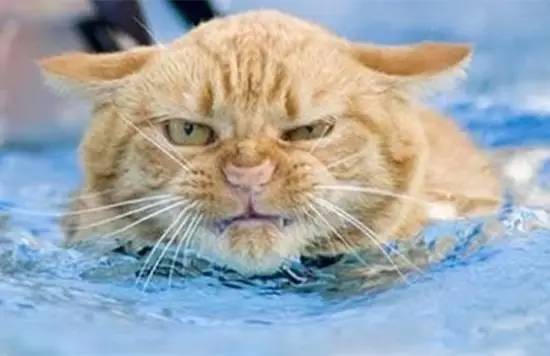
Another reason cats may not care for water is because of negative experiences — or lack of experience — with it. If your cat’s only exposure to water was being trapped in a downpour, forced into a flea bath or squirted as a disciplinary measure, it’s hardly surprising that they’re not fond of it.
猫不喜欢水的第三个原因是缺乏经验。如果你的猫咪只会在以下情况接触到水,如下大雨、洗澡除跳蚤或接受水枪的惩罚,那么它们不喜欢水也就不奇怪了。
Felines that aren’t accustomed to water may also shy away from it because cats are creatures of habit and they typically don’t enjoy surprises. Cats that have received regular baths since kittenhood, or those that have warmed up to water on their own terms, may love to join you for a dip. However, trying to force a cat into water will likely initiate the animal’s fight-or-flight response, potentially injuring you and your cat — and making your pet wary of both you and H2O.
猫科动物不习惯接触水,遇水会退缩,因为它们是有习惯的动物,通常不喜欢惊喜。从小就经常洗澡的猫咪,或常戏水的猫咪可能喜欢跟你一起洗个澡。但如果强迫猫咪入水的话,可能会激发它们战斗或逃跑的反应,双方都可能会受伤,并且以后猫咪可能会提防你和水。
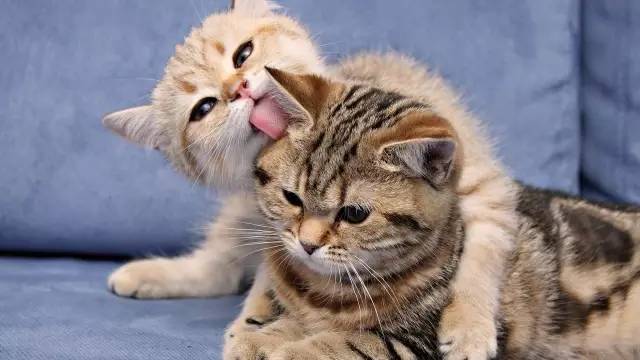
Finally, being wet is simply unpleasant for cats for a variety of reasons. Cats spend nearly half of their waking hours grooming themselves, so it’s understandable that they wouldn’t enjoy having all that hard work ruined. Plus, cats have numerous scent glands that produce pheromones used for marking and communication, and water — especially scented bathwater and chemical-laden tap water — can interfere with this.
第四,由于一些原因,猫咪沾水后会感到非常不舒服。猫咪每天有一半醒着的时间是在梳妆打扮,所以它们不希望自己的劳动成果付诸东流,这一点很好理解。另外,猫有无数嗅觉腺体,会发出信息素来做记号和交流,而水会对它们造成干扰,尤其是有气味的洗澡水和消过毒的自来水。
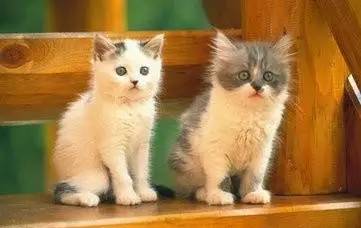
And in addition to weighing them down, wet fur is also cold and makes it difficult for them to move. “Their coat doesn't dry quickly and it's simply uncomfortable to be soaking wet,” animal behaviorist Kelley Bollen told LiveScience.
身体太湿不仅会让身体变重,还会使猫咪感到寒冷,并且行动不便。动物行为学家凯莉·博伦告诉美国生命科学网,“猫的毛变干需要较长的时间,湿透了会很不舒服”。
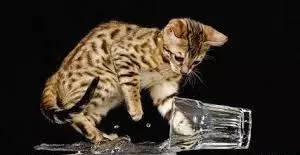
So if cats aren’t all that interested in swimming, why do so many felines splash in their water bowls and stare so intently at bathwater? It turns out it’s not so much the water itself that interests them as how it looks and moves.
但如果猫咪对游泳毫无兴趣,为什么许多喵星人常弄的盆里的水四处飞溅,还专心地盯着浴缸里的水呢?看似这些行为都表现出它们对水有浓厚兴趣,但事实上并非如此。
“That flickering pattern, the light coming off the water, is hard-wired into their brain as a potential sign of prey,” Bradshaw said. “It’s not because it’s wet. It’s because it moves and makes interesting noises. Something moving is a potential thing to eat.”
布莱德肖说:“波光粼粼的水面在它们看来是潜在的猎物信号,并不是因为水很湿,而是因为水会流动,并发出哗哗的声音。而移动的物体就可能是猎物。”

限 时 特 惠: 本站每日持续更新海量各大内部创业教程,一年会员只需98元,全站资源免费下载 点击查看详情
站 长 微 信: lzxmw777






